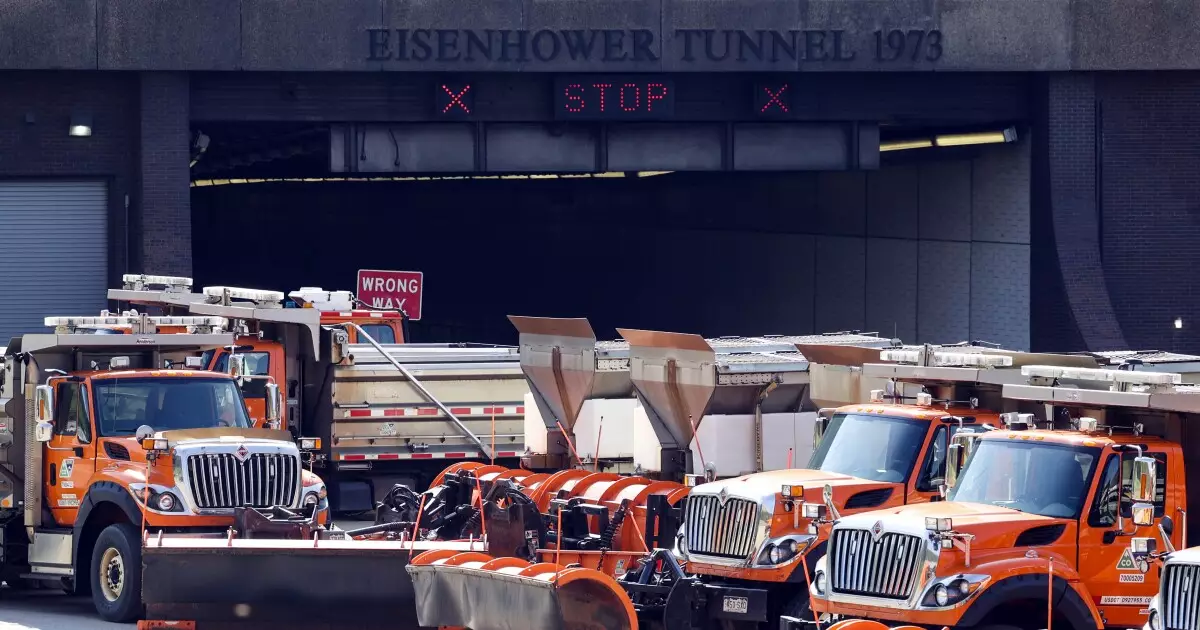The recent announcement by Colorado’s Statewide Bridge and Tunnel Enterprise (BTE) to issue $212.45 million in insured revenue bonds encapsulates a brewing storm of fiscal anxiety intertwined with the state’s unique political landscape. As much as this bond sale is pitched as a milestone in funding essential infrastructure, it carries with it the weight of ongoing legal battles and contentious tax limitations. This situation begs a deeper analysis into not only the immediate funding needs but also the systemic issues that have plagued fiscal policy in Colorado, particularly the Taxpayer’s Bill of Rights (TABOR).
The premise of the bond issuance rests primarily on the revenue generated from bridge safety surcharges, a fee levied on vehicle registrations that has yielded a promising projected revenue of $116 million by fiscal 2025. Yet, the underlying assurances for these bonds come from a precarious legal ground, as ongoing challenges to the legitimacy of these surcharges threaten to place the entire scheme in jeopardy. With inevitable disputes regarding fiscal responsibility and voter-approved taxation looming large, one must question whether the immediate benefits of such funding can outrun the long-term repercussions of financial instability.
Business or Government? The Duality of BTE’s Role
The BTE operates as a government-owned enterprise, placed strategically within the frameworks of Colorado legislation. On one hand, this allows it to issue revenue bonds while enjoying exemption from TABOR, a law famously scrutinized as one of the most restrictive tax regulations in the U.S. The peculiar nature of BTE’s operations raises a critical question: Is it functioning as a business meant to optimize revenue streams, or is it a government entity serving the public good?
The decision to categorize it as an enterprise allows it to sidestep the restrictions of TABOR, meaning it can impose fees without voter approval. This has enormous implications; the tension between fiscal autonomy and taxpayer protection is at the heart of TABOR’s criticism. Conservative groups, like Americans for Prosperity, who launched lawsuits against the BTE, argue that the state’s use of “fees” represents a circumvention of taxpayer rights. Ironically, while these fiscal maneuvers may seem beneficial for immediate infrastructure needs, they also build a framework ripe for ongoing legal battles that consume resources and attention better spent on actual construction projects.
The Political Implications of TABOR
The criticisms of TABOR are not new; they have resonated through Colorado’s political landscape since its inception in 1992. Lawmakers, particularly from the Democratic majority, have begun to push back against what they perceive as an outdated mechanism stifling growth and effective governance. Recent legislative moves, including a call to hire outside legal counsel to challenge TABOR’s constitutionality, indicate a willingness to confront the restrictive nature of the amendment head-on.
Proponents of TABOR argue that it cultivates fiscal responsibility by limiting government spending and imposing a system of checks and balances. Still, as the state grapples with an alarming fiscal shortfall—exceeding $1 billion for the upcoming budget—it is no surprise that the narrative has turned into one of urgent need versus dogmatic adherence to financial conservatism. This dilemma is a classic case of how ideological values clash with practical governance, suggesting that the rigidity of TABOR might ultimately serve as a self-inflicted wound on Colorado’s financial aspirations.
Legal Quagmire and Future Considerations
The aftermath of the political actions surrounding TABOR seeps into the legal realm, as challenges to the BTE’s revenue streams pervade the fiscal discussion. The case set to be argued in the Colorado Court of Appeals raises fundamental questions about the legality of the fees imposed by the BTE as a revenue mechanism. If the court were to side with the plaintiffs, it could trigger a cascade of financial challenges, inhibiting not just the BTE but possibly other enterprises reliant on fee-based revenue models across the state.
The sagacity of issuing such bonds amidst ongoing litigation offers a glimpse into a troubling cycle: the urgency to fund deteriorating infrastructure may hastily obscure the long-term consequences of relying on shaky financial ground. Each bond issuance carries the risk of litigation fallout; thus, the state will have to navigate this complex interplay of public sentiment, revenue needs, and legal constraints with a deft hand.
In delving into Colorado’s latest infrastructure bond initiative, it becomes unmistakably clear that what is at stake goes beyond fiscal figures and statutory provisions. The larger narrative is about governance, taxpayers’ rights, and the enduring tension between fiscal conservatism and the need for proactive investment in a growing state. As Colorado maneuvers its way through these challenging waters, the outcomes will likely impact countless lives—underscoring the delicate balance governments must strike between immediate necessities and the ideals of financial accountability.

